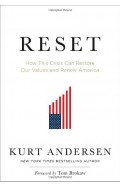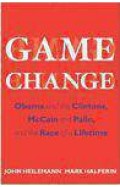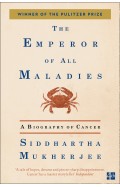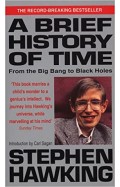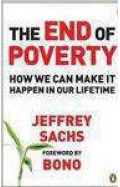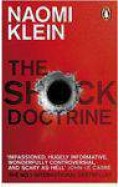- Home
- Pakistan Day Collection
- LAHORE @ PARTITION VIOLENCE, CROSS-MIGRATION, AND REGENERATION 1947-1961
LAHORE @ PARTITION VIOLENCE, CROSS-MIGRATION, AND REGENERATION 1947-1961
By: ADNAN TARIQ
-
Rs 2,695.50
- Rs 2,995.00
- 10%
You save Rs 299.50.
Due to constant currency fluctuation, prices are subject to change with or without notice.
This book provides a comprehensive perspective on violence, distinguishing it from prior literature that often leans towards assigning blame to one of the involved parties.
— Muhammad Iqbal Chawla —
University of the Punjab, Lahore
With a deft utilization of archival sources and a seamless integration of secondary materials, the author crafts a narrative that stands distinct from any previously explored. A particularly intriguing facet of this research lies in the foregrounding of indigenous voices, shedding light on how the people of Lahore navigated the turbulent aftermath of partition.
— Tahir Kamran —
Beaconhouse National University, Lahore
With a comprehensive exploration of the city’s journey through Partition, the tumultuous communal conflicts, and subsequent regeneration, this work stands as a significant scholarly contribution. The author’s in-depth analysis illuminates the complex dynamics of violence during Partition, migration, and socio-political change, painting a vivid portrait of Lahore’s resilience in the face of adversity.
— Hussain Ahmad Khan —
Institute of Global and Historical Studies, Government College University, Lahore
There are two main strengths of the research study; first, the use of local sources, like FIRs, revenue records and vernacular literature and, second, a common man’s perspective.
— Faraz Anjum —
University of the Punjab, Lahore
The author’s forays into the processes of “cross migration” and “patterns of migrant settlement” lend further depth to the study. On top of this, the non-partisan approach of the author will make it worth reading for general readers and scholars across South Asia.
This book provides a comprehensive perspective on violence, distinguishing it from prior literature that often leans towards assigning blame to one of the involved parties.
— Muhammad Iqbal Chawla —
University of the Punjab, Lahore
With a deft utilization of archival sources and a seamless integration of secondary materials, the author crafts a narrative that stands distinct from any previously explored. A particularly intriguing facet of this research lies in the foregrounding of indigenous voices, shedding light on how the people of Lahore navigated the turbulent aftermath of partition.
— Tahir Kamran —
Beaconhouse National University, Lahore
With a comprehensive exploration of the city’s journey through Partition, the tumultuous communal conflicts, and subsequent regeneration, this work stands as a significant scholarly contribution. The author’s in-depth analysis illuminates the complex dynamics of violence during Partition, migration, and socio-political change, painting a vivid portrait of Lahore’s resilience in the face of adversity.
— Hussain Ahmad Khan —
Institute of Global and Historical Studies, Government College University, Lahore
There are two main strengths of the research study; first, the use of local sources, like FIRs, revenue records and vernacular literature and, second, a common man’s perspective.
— Faraz Anjum —
University of the Punjab, Lahore
The author’s forays into the processes of “cross migration” and “patterns of migrant settlement” lend further depth to the study. On top of this, the non-partisan approach of the author will make it worth reading for general readers and scholars across South Asia.
LAHORE @ PARTITION VIOLENCE, CROSS-MIGRATION, AND REGENERATION 1947-1961
By: ADNAN TARIQ
Rs 2,695.50 Rs 2,995.00 Ex Tax :Rs 2,695.50
Zubin Mehta: A Musical Journey (An Authorized Biography)
By: VOID - Bakhtiar K. Dadabhoy
Rs 892.50 Rs 1,050.00 Ex Tax :Rs 892.50
The Origins of Political Order From Prehuman Times to the French RevolutioN
By: Francis Fukuyama
Rs 4,045.50 Rs 4,495.00 Ex Tax :Rs 4,045.50
Reset: How This Crisis Can Restore Our Values and Renew America
By: Kurt Andersen
Rs 450.00 Rs 500.00 Ex Tax :Rs 450.00
How To Win A Cosmic War God Globalization And The End Of War
By: Reza Aslan
Rs 625.50 Rs 695.00 Ex Tax :Rs 625.50
Game Change Obama And The Clintons McCain And Palin And The Race Of A Lifetime
By: John Heilemann
Rs 715.50 Rs 795.00 Ex Tax :Rs 715.50
Made to Stick: Why Some Ideas Take Hold and Others Come Unstuck
By: Chip Heath & Dan Heath
Rs 2,695.50 Rs 2,995.00 Ex Tax :Rs 2,695.50
No similar books from this author available at the moment.
No recently viewed books available at the moment.
Zubin Mehta: A Musical Journey (An Authorized Biography)
By: VOID - Bakhtiar K. Dadabhoy
Rs 892.50 Rs 1,050.00 Ex Tax :Rs 892.50
LAHORE @ PARTITION VIOLENCE, CROSS-MIGRATION, AND REGENERATION 1947-1961
By: ADNAN TARIQ
Rs 2,695.50 Rs 2,995.00 Ex Tax :Rs 2,695.50












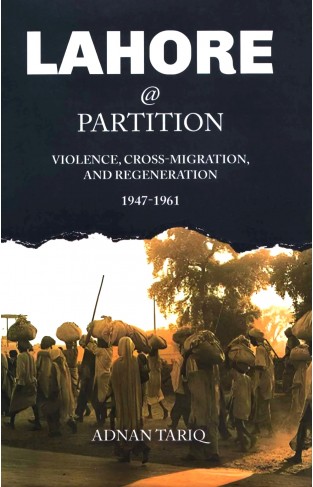

-120x187.jpg?q6)





-120x187.jpg?q6)
